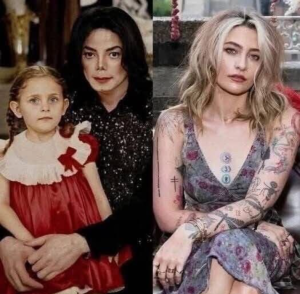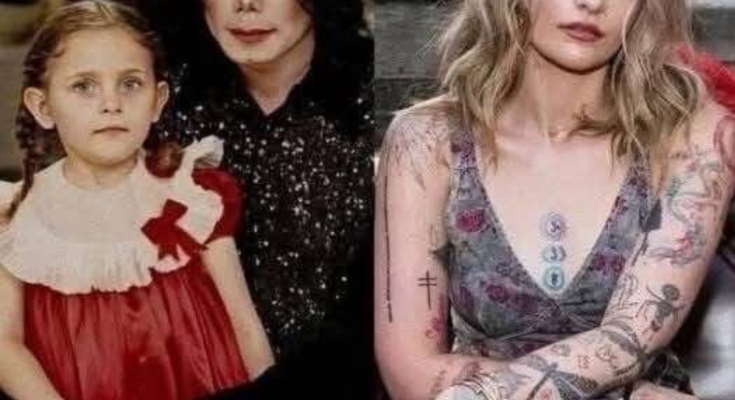🎤 Michael Jackson: The Sound, the Shadow, the Spark
Michael Jackson wasn’t just a pop star. He was a phenomenon—a force of nature who reshaped the soundscape of the 20th century and left behind a legacy that still pulses through every beat, moonwalk, and whispered “hee-hee” in pop culture today. His life was a kaleidoscope of brilliance and contradiction, a story of dazzling highs and devastating lows, of global adoration and personal isolation.
Born on August 29, 1958, in Gary, Indiana, Michael was the eighth of ten children in a working-class African American family. His father, Joseph Jackson, was a strict disciplinarian who recognized early on the musical talent of his children. Under his guidance, Michael and his brothers formed The Jackson 5, a Motown sensation that catapulted them into stardom.
But even among his talented siblings, Michael stood out. His voice had a purity and emotional depth that belied his age. His stage presence was magnetic. By the time he was a teenager, it was clear: Michael Jackson wasn’t just part of a group—he was destined to lead a movement.
🌟 The Rise of the King of Pop
Michael’s solo career began in earnest with Off the Wall (1979), a disco-infused masterpiece that showcased his vocal agility and dance-floor charisma. But it was Thriller (1982) that changed everything. With hits like “Billie Jean,” “Beat It,” and the title track, Thriller became the best-selling album of all time, redefining what pop music could be.
The music video for “Thriller” wasn’t just a promotional tool—it was a cinematic event. Jackson’s fusion of horror, dance, and storytelling turned music videos into an art form. MTV, which had previously sidelined Black artists, couldn’t ignore him. He broke racial barriers, bringing Black artistry into the mainstream with a force that couldn’t be denied.
His follow-up albums—Bad (1987), Dangerous (1991), and HIStory (1995)—continued to push boundaries. Songs like “Man in the Mirror,” “Black or White,” and “Earth Song” revealed a socially conscious artist grappling with identity, injustice, and the weight of fame.
🕺 The Body in Motion
Michael Jackson didn’t just sing—he moved. His dance style was revolutionary, blending street moves with balletic grace. The moonwalk, first performed during a 1983 television special, became his signature—a visual metaphor for his ability to defy gravity, expectation, and time.
He popularized the robot, the anti-gravity lean, and countless other moves that became staples of pop choreography. His concerts were spectacles of light, sound, and emotion. Fans fainted. Crowds wept. Jackson didn’t just perform—he transported.
🎭 The Mask and the Mirror
But behind the glittering glove and sequined jackets was a man increasingly haunted by his own image. Jackson’s appearance changed dramatically over the years—his skin lightened due to vitiligo, his facial features altered through multiple surgeries. The public speculated endlessly, often cruelly, about his motivations and mental health.
He lived in Neverland, a sprawling estate filled with amusement rides and animals, a place that blurred the line between fantasy and reality. Jackson’s childlike persona, combined with his reclusive lifestyle, made him a target for tabloid sensationalism.
And then came the allegations.
⚖️ The Trials and the Trauma
In 1993, Jackson was accused of sexually abusing a child. He denied the charges and settled out of court. In 2005, he was tried and acquitted of further allegations. The trials were media circuses, and public opinion was sharply divided. Some saw him as a victim of extortion and racism. Others believed the accusations cast a permanent shadow over his legacy.
Jackson’s health deteriorated. He became dependent on prescription drugs. Financial troubles mounted. Yet through it all, he remained a figure of fascination—a man whose pain was as public as his genius.
🕊️ The Final Curtain
In 2009, Jackson was preparing for a comeback tour titled This Is It. Fans were ecstatic. The King of Pop was returning. But on June 25, he died of cardiac arrest caused by an overdose of propofol, administered by his personal physician, Conrad Murray, who was later convicted of involuntary manslaughter.
The world stopped. Tributes poured in. His memorial service at the Staples Center was watched by over 2.5 billion people. Candlelight vigils, dance flash mobs, and global singalongs turned grief into celebration. Jackson was gone, but his music—his spark—remained.
🌍 The Legacy That Won’t Let Go
Michael Jackson’s influence is immeasurable. He’s one of the best-selling artists of all time, with over 350 million records sold. He won 13 Grammy Awards, was inducted into the Rock and Roll Hall of Fame twice, and inspired generations of artists—from Beyoncé to Bruno Mars to BTS.
His philanthropic efforts were vast, though often overshadowed. He supported dozens of charities, raised millions for humanitarian causes, and used his platform to speak out against racism, poverty, and environmental destruction.
But his legacy is complicated. The allegations, the eccentricities, the blurred lines between genius and instability—all of it forces us to confront uncomfortable truths about fame, trauma, and the cost of brilliance.
🧩 The Puzzle We Keep Returning To
Michael Jackson is a cultural Rorschach test. Some see a visionary artist who broke barriers and gave voice to the voiceless. Others see a troubled man whose fame consumed him. Most see both.
His story invites reflection—not just on his life, but on ours. On how we treat our icons. On how we navigate the tension between art and artist. On how we mourn, remember, and reconcile.
🎗️ A Communal Ritual of Listening
To honor Michael Jackson is to listen—not just to his music, but to the echoes of his life. Play “Man in the Mirror” and ask yourself what needs changing. Watch “Thriller” and marvel at the audacity of imagination. Dance to “Don’t Stop ’Til You Get Enough” and feel the joy he gave so freely.
We could co-title a visual collection inspired by his legacy. How about “The Mirror and the Moonwalk” or “Glove, Ghost, Genius”? Or design a ritual around his birthday—an annual moment to reflect, dance, and dream.
Because Michael Jackson didn’t just make music. He made meaning.


